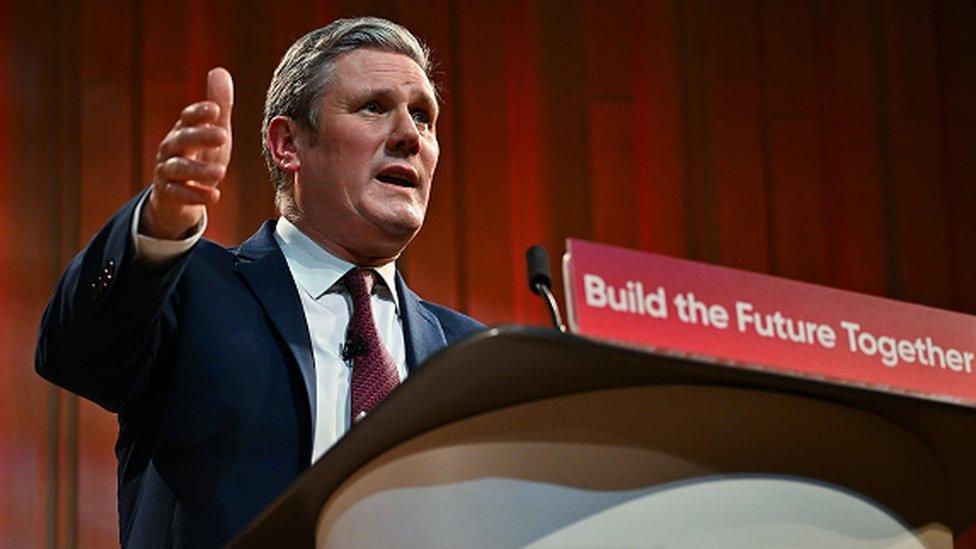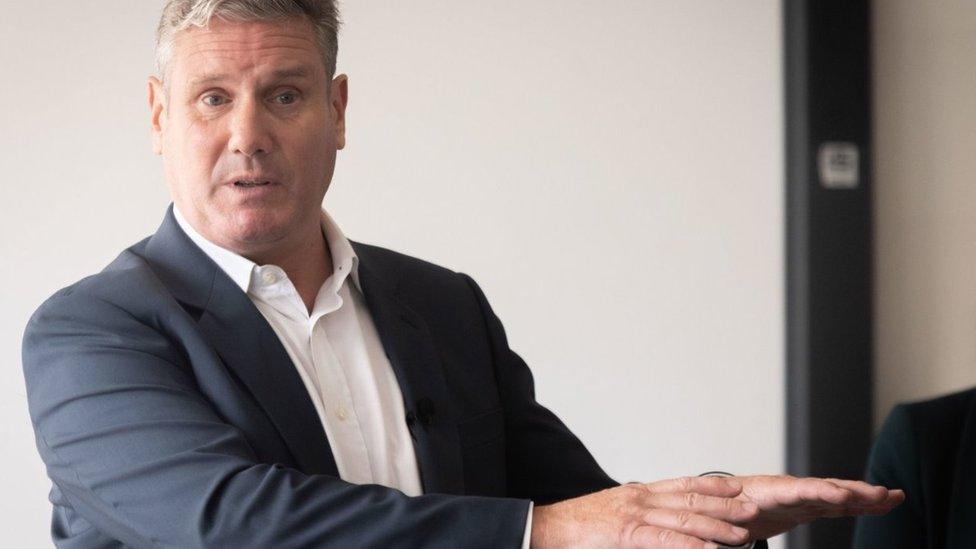Labour members back calls for electoral reform
- Published

Labour members have backed calls to change the voting system for general elections.
At the party's annual conference in Liverpool, delegates voted in favour of the party including a commitment to introduce proportional representation (PR) in its next manifesto.
But Sir Keir Starmer has said electoral reform is not a priority and the policy is not expected to be in the manifesto.
The Labour leader has been under pressure to back the change.
General elections in the UK currently use First Past the Post (FPTF), where the candidate with the most votes in a constituency becomes an MP.
Supporters say the system is easy to understand and it means members of Parliament have a direct link to a constituency.
But opponents argue it favours the Tories and encourages voter apathy because those in safe seats may feel their vote does not make a difference.
By contrast, PR ensures a distribution of seats more closely linked to the number of votes cast for each party.
Politicians from all wings of the Labour party, including Greater Manchester mayor Andy Burnham and former shadow chancellor John McDonnell, have been urging their leader to embrace some level of proportional representation.
However, in an interview with the Observer this week, external, Sir Keir suggested he would not put a pledge for electoral reform in Labour's manifesto, saying it was "not a priority for me".
"There are a lot of people in the Labour party who are pro-PR but it's not a priority and we go into the next election under the same system that we've got, First Past The Post, and I'm not doing any deals going into the election or coming out of the election," he added.
Some Labour members argue a proportional system would lead to the party having to form coalitions with its rivals like the Liberal Democrats.
At last year's conference, about 80% of constituency party delegates voted in favour of PR but the proposal was defeated after unions opposed the move.
Since then, three of the biggest five unions linked to Labour have changed their stance, putting pressure on the party's leadership to follow suit.
A number of senior figures have also backed the calls.
Mr Burnham, who is seen as a possible future leadership candidate, said FPTP concentrates power in too few hands, leading to a country "that doesn't work for everybody".
Related topics
- Published26 September 2022

- Published24 September 2022
